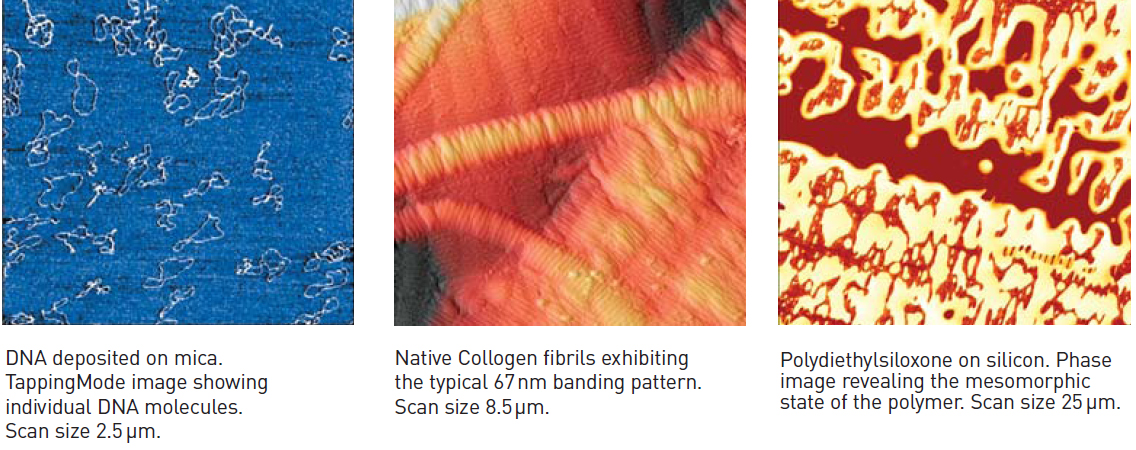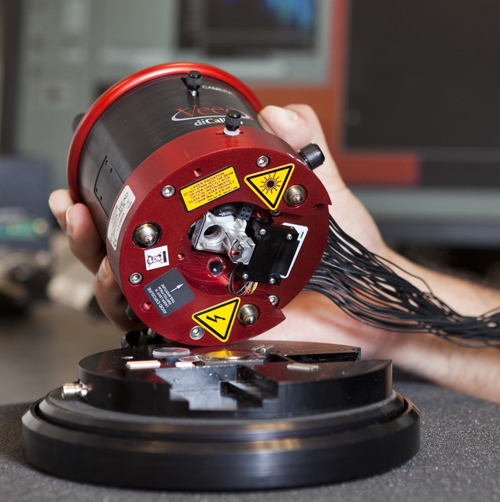Veeco diCaliber Atomic Force Microscope
Specifications
- Noise floor: <4nm X-Y, <0.15nm Z
- Range: 90µm X-Y, 10µ Z
- Load range: ~0.1nN - 500µN
- Speed range: ~1nm/s - 100µm/s
- Modes: contact, tapping, point spectroscopy (force-distance), phase imaging, LFM
Description
The combination of atomic scale contact areas and atomic scale resolution give scanning probe microscopes like the diCaliber the ability to probe atomic structures and fundamental interactions between surfaces at the atomic scale; such instruments have thus been sub-categorized as atomic force microscopes (AFMs). The diCaliber is a versitile instrument combining high resolution imaging with small size and flexibility in substrate mounting. In fact, this unique AFM can be placed directly onto virtually any surface of interest, making it particularly well-suited for studying tribological specimens. We have used the unique features of this instrument to: (1)
study single asperity frictional interactions in controlled environments
(2) study the mechanical and frictional properties of tribofilms
(3) integrate AFM and macrotribometry experiments for in-situ surface characterization during sliding
(4) study irregular surfaces
Example Data
measurements courtesy of Veeco





